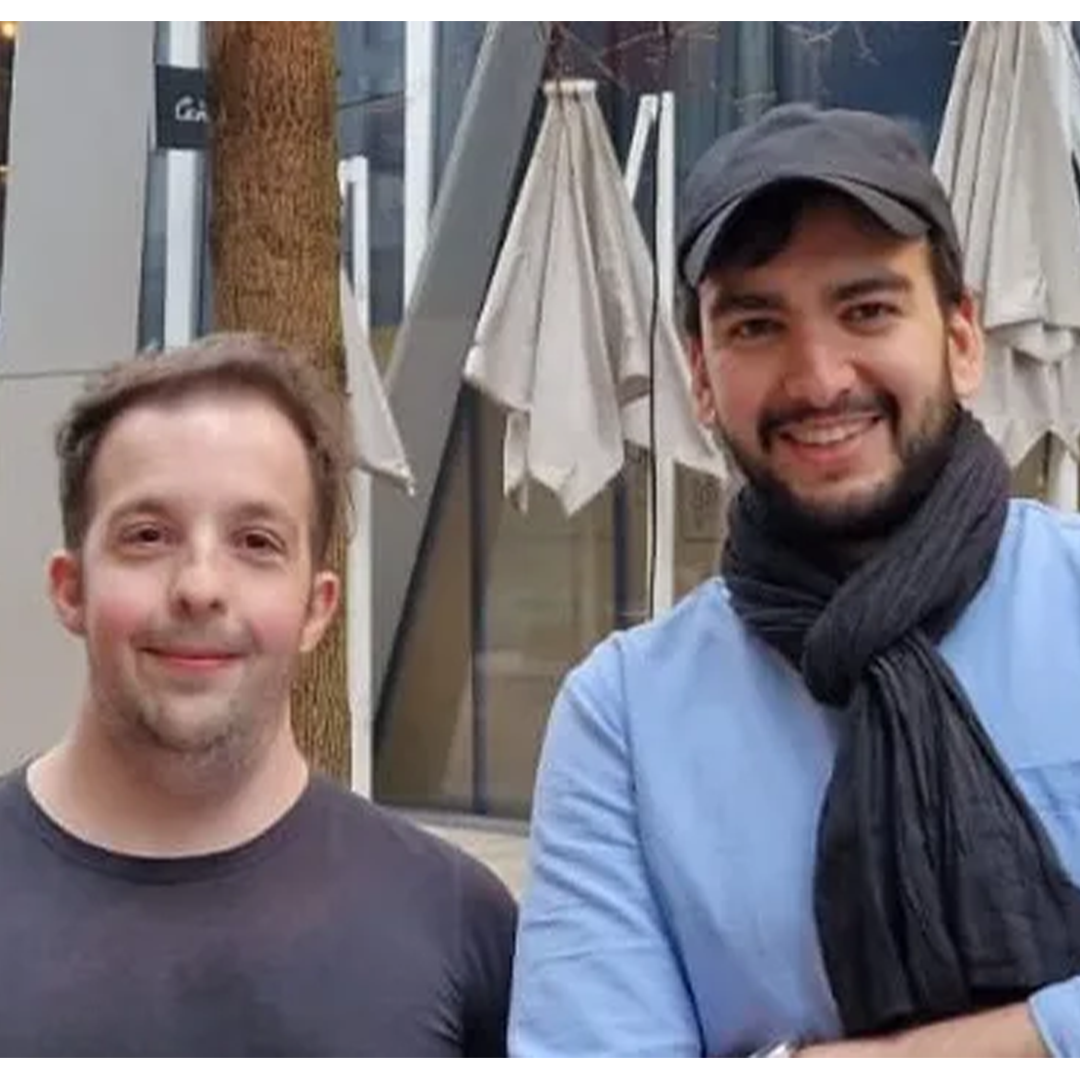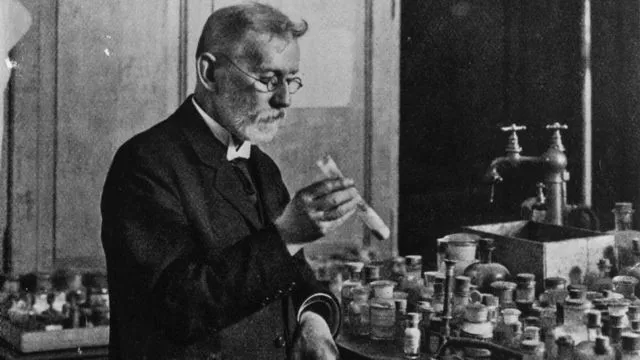Building with your Meilleur Ami
By Alexandra | July 26, 2023
The term “best friends” gets thrown around a lot when we we’re growing up, but it’s stood the test of time for the founders of Turing Biosystems. Adam Amar and Rémy Boutonnet met at a science club when they were teenagers in Lyon. They are now using artificial intelligence to identify targets for cancer drugs. Adam is a computation biotech PhD and Remy has a background in computing and hardware, and the company’s approach draws on these two complementary backgrounds.
CF invested in their pre-seed last year and we caught up with them last week to hit them with 6 Questions.
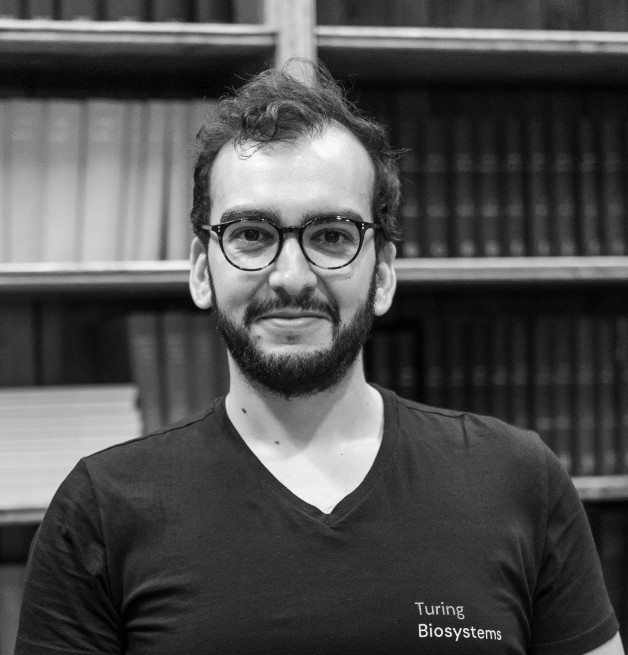
Turing Biosystems are focused on the issue of “explainability” in drug development. Pharmaceutical companies or clinicians want to understand how an AI model has reached a given conclusion, before using the output to make life or death decisions. Turing Biosystems uses Automated Reasoning (and not the blackbox of Machine Learning) to ensure results are fully explainable and interoperable for the end user.
The team realised the computing power of existing solutions was too slow to run. They identified the potential of logic-based Automated Reasoning to analyse billions of clinical data points in a time-efficient way. They then used Remy’s hardware experience to optimise their software with hardware — using reprogrammable chips based on field-programmable-gate-arrays (FPGAs) to match biomarkers/targets and outcomes across multi-omics data.
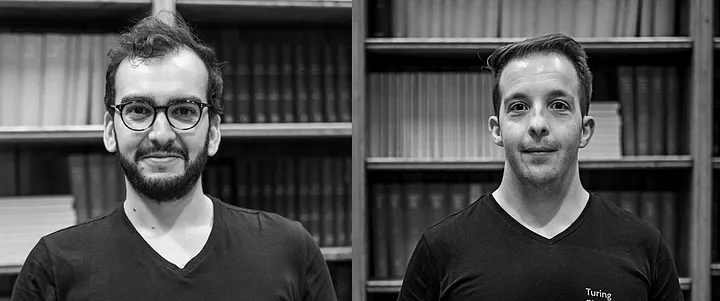
1. You have been friends with each other since childhood, did you ever think you would start a company together or was this completely unplanned?
There was always something there; it started in our high school science club. Initially, it was making stratospheric balloons with embedded experiments or testing the effects of acidic rains on organisms, over time this evolved to building (and crashing) drones as well as working on some smaller software projects.
When we were around 15 years of age we built a search engine for scientific information and knowledge, we had the ambition to make a company but like many youthful ideas, we struggled to identify how to monetise it and soon moved on to something else. In hindsight, at this point, it was clear we had the ambition to do something together. We continued to discuss ideas, some good, some not so good and here we are today, we’ve eventually set out to build a company together.
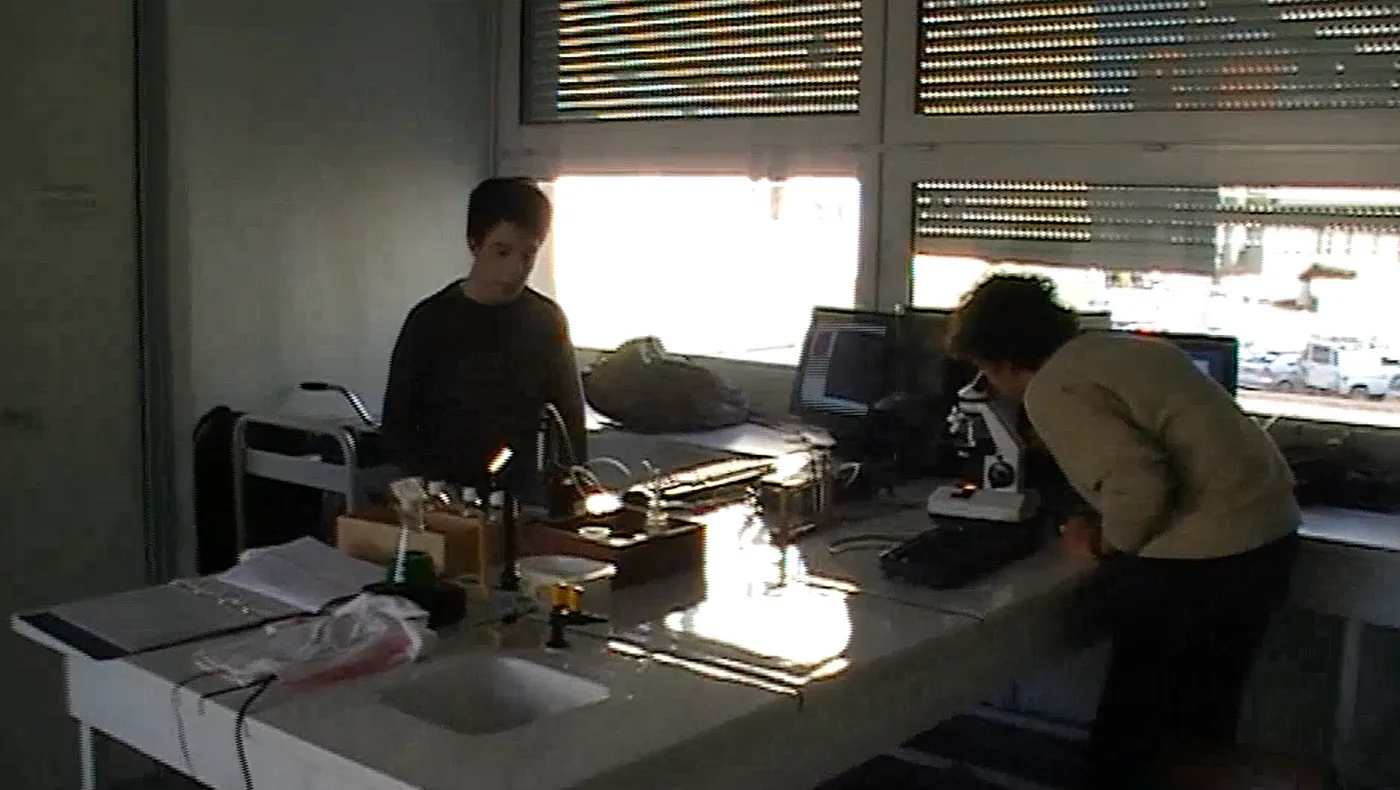
2. Best friends can be like family and people often say going into business with family can have issues. What has your experience of building a company as close friends been?
It’s been great, there’s an inherently deep level of trust and understanding between us. This allows us to be honest and direct with each other, meaning we can quickly understand what the other may be feeling or thinking. In the context of a business this means we immediately address any form of disagreements that arise (and they happen regularly) but ultimately, it results in us spending more time building and communicating on the things that move the business forward. In addition, we simply enjoy working together and solving problems… we’ve been doing it for years and Turing Biosystems is simply an extension of this.
All this said, we made sure from day one that things were fairly divided both at an organisational and operational level, whilst ensuring everything was written down. We would liken it to a marriage; you need to communicate and trust each other but be sure to have a prenup in case anything goes wrong! It’s best to work for the best and prepare for the worst.
3. Reflecting on your progress and learnings, if you could tell Turing Biosystems day one Remy & Adam one thing what would it be?
Remy: Believe in the mission whilst accepting feedback. Consider that advisors only offer a partial perspective, collectively these can be invaluable. You’re right to want to talk to customers early and a lot of your greatest opportunities come by chance; talk to everyone and keep building.
Adam: Trust in the process, which should be built upon your discussions with potential customers. Focus on building and do not listen to those without skin in the game.
"You’re right to want to talk to customers early and a lot of your greatest opportunities come by chance; talk to everyone and keep building"
Rémy Boutonnet
4. Do you have any advice for aspirational founders setting out on the early stages of their journey?
Rémy: Talk to customers. Sometimes biotech founders think they can just be heads down in the laboratory and worry about commercials later. That’s not the case. You must always be asking yourselves: Who will buy this? Otherwise what you’re working on may be best placed as open source or academic work, and this is great, but in different ways. Build something, this is where your company value comes from. Industry experience after your PhD is good for you, especially if you work at a company that is well-managed. It does not need to be a start-up. Managing a team and building a good strong product in a company is very different from what you are used to in academia.
Adam: Stay focused, talk to customers, and keep building. Keep using first principle thinking, look for the ground truths technologically (product) and socially (customers).
5. What is your biggest achievement to date with Turing Biosystems?
For us, it’s not one big achievement but much more of a daily appreciation for what we have done, and the opportunity we see for the future of care. It’s working every day with people in pharma, biotech, and clinicians that are trusting us financially, with their time, and resources to help discover new ways to optimise patients’ responses to their therapies. These people are busy and focused on either treating cohorts of patients or managing drug discovery and clinical trials in their hospitals and companies. They take time to work with us, with our platform, and with exciting results beginning to emerge we’re enthused about improving patient outcomes.
We prefer to look at this continuous process and see every day as an opportunity to push forward as opposed to celebrating small wins because we believe so much can, and will be done.
